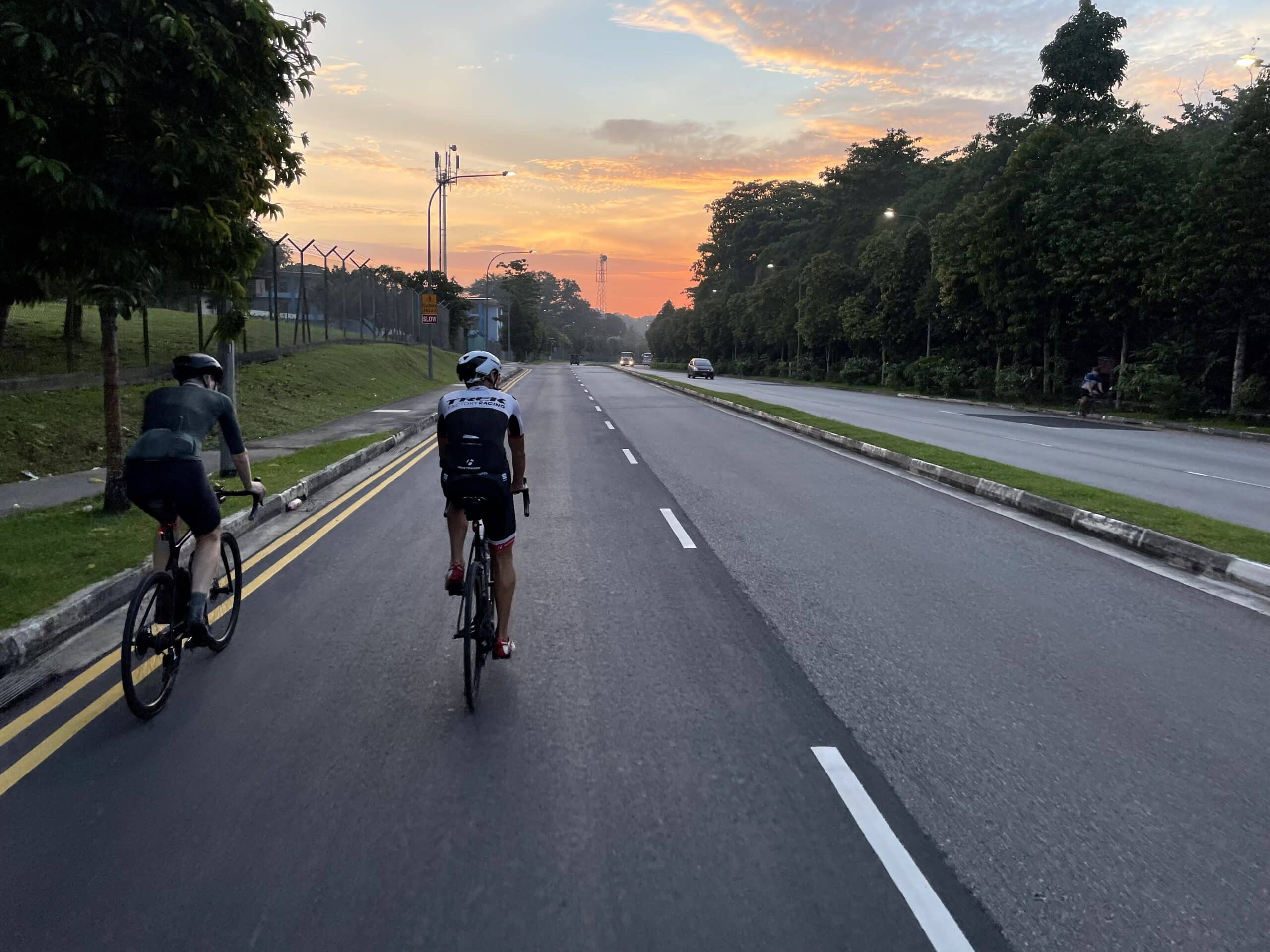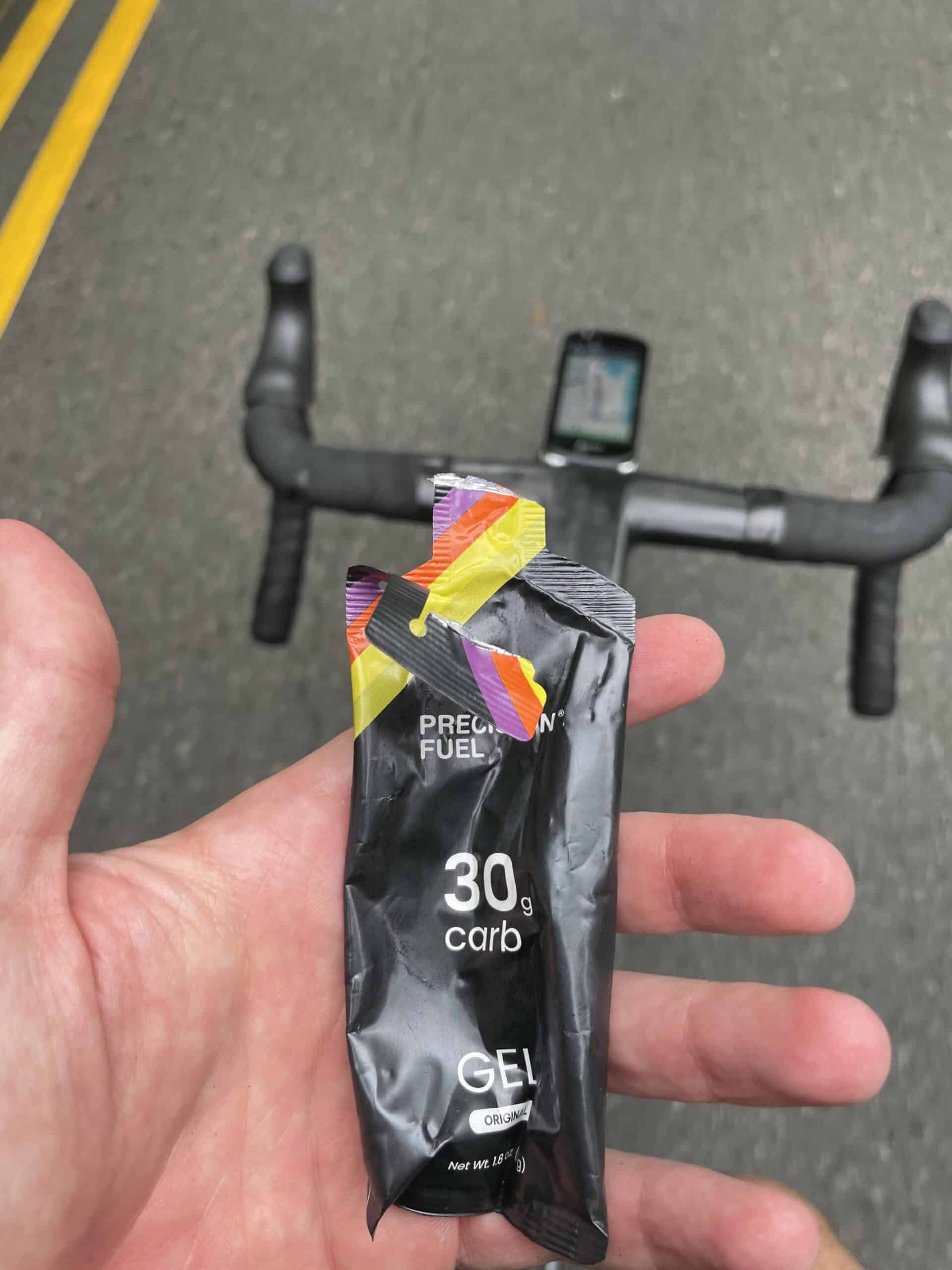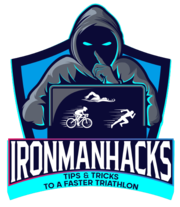These three things worked for me, and they may be useful to you. They are so fundamental I’ve stuck with them for years.
1. Become accountable
When I first started training on a regular schedule, I was only partially accountable, as I was only answering to myself.
I had a training plan, a schedule, and clear goals which I followed, but if I missed a few sessions, it didn’t really matter.
But then, I started getting more social and running, riding, and eventually swimming with others, and this made me a bit more accountable.
It’s hard to skip a 4:20am training session when you know your friend is waiting for you outside, ready to run.
It’s so much easier to just sleep in otherwise.

An additional benefit of having a training partner is that we can push each other in intervals or support each other when things get rough.
I’ve long referred to my training partner as my secret weapon – as a stronger runner he ensures I hit all my hard intervals, and this really counts for something.
Yet another level of accountability is hiring a coach. Not only will you be held accountable (to a degree) your coach should guide and mentor you.
If you’re unable to make your workouts, your coach should be able to find out why and work to common, realistic goals that you can reach.
So, how accountable are you? Are you only accountable to yourself, or do you have a coach, mentor, or training buddy looking after you, too?
2. Fix recovery
Without recovery training is pointless.
This is when your body builds the adaptations you stimulated in your training, so if you are not getting enough of it, you are just spinning your wheels.
To me, this comes down to two things.
First, get enough good quality sleep on a regular basis.
Track your sleep over weeks or months.
Read up on what comprises good sleep and how to improve it.

www.sleepisaskill.com is a great place to start.
If your sleep sucks, you might as well not train.
But because I like to train early in the morning, I have to go to sleep early.
Of course, this isn’t easy when you have a family, work, and social life all asking for your time late at night.
But I’m ok with cutting out late-night dinners and drinking, and going to sleep at the same time as my kids.
Second, know when to train hard and when to back off.
Your zone 2, easy days need to be easy.
No intervals.
No fast Strava glory.
No surges against your riding buddies.
You’ll have plenty of times to go hard when you’ll wish it was easy.
So, are you giving your body enough time to recover or are you just burning the candle from both ends?
3. Fix nutrition
Of course, if your diet both outside of training and while training and racing is not dialed in, you could be in for problems.
The biggest change I made to my daily diet was removing alcohol. I know this may be a bit extreme for many, and I don’t think there’s anything wrong with a few drinks.
But for me, a more extreme approach works better (such an approach may not be necessary for everybody) where I just decided to cut it all out 100%.
I’m sure this had more positive effects than I’m aware of, but the major two must be that it eliminated empty, useless calories and that it stopped disrupting my sleep (both quality and duration).
In my daily diet, besides cutting out alcohol, I just try to keep it balanced with minimal junk food, refined foods, and high calorie foods.
Nutrition during training is the big one.

Figuring out how much of what to consume before and during a race took me a while to learn, but in short it could be summarized as:
- Hydrate and carb-up the day before a race
- High carbs on the bike along with sodium and lots of hydration
- Good hydration and some carbs on the run
In short, lots of carbs and sodium on the bike and run have set me up well, especially in the hot and humid races I join.
And of course, the only way to learn this and optimize your race-day nutrition is to test and experiment with it during training.
In summary, being accountable to a friend or coach, solid sleep or recovery, and balanced daily nutrition and mindful race-day nutrition will allow you to reach your full potential and perform your best.


Leave a Reply
You must be logged in to post a comment.